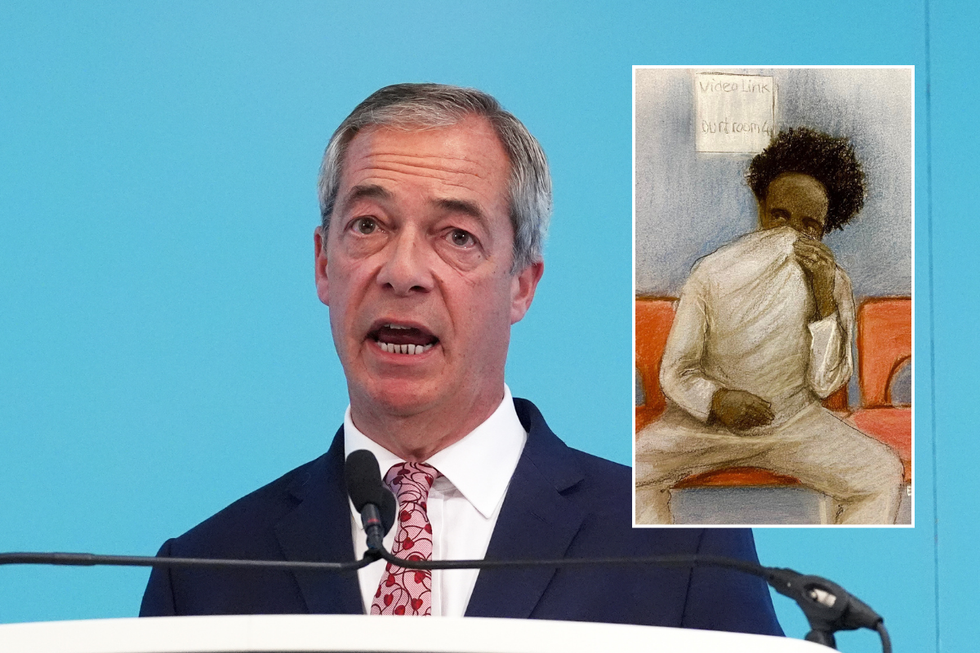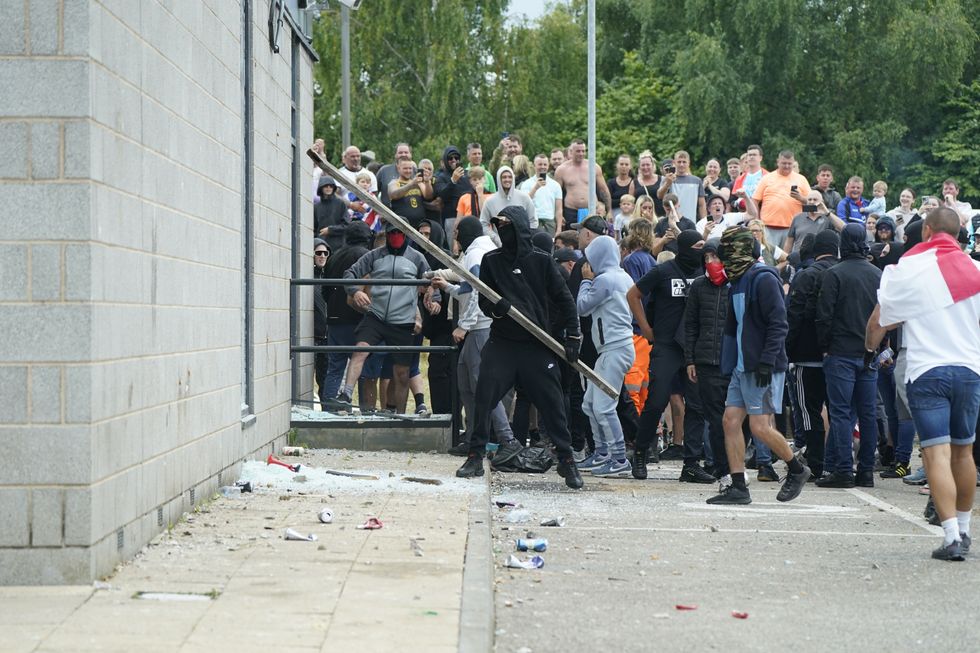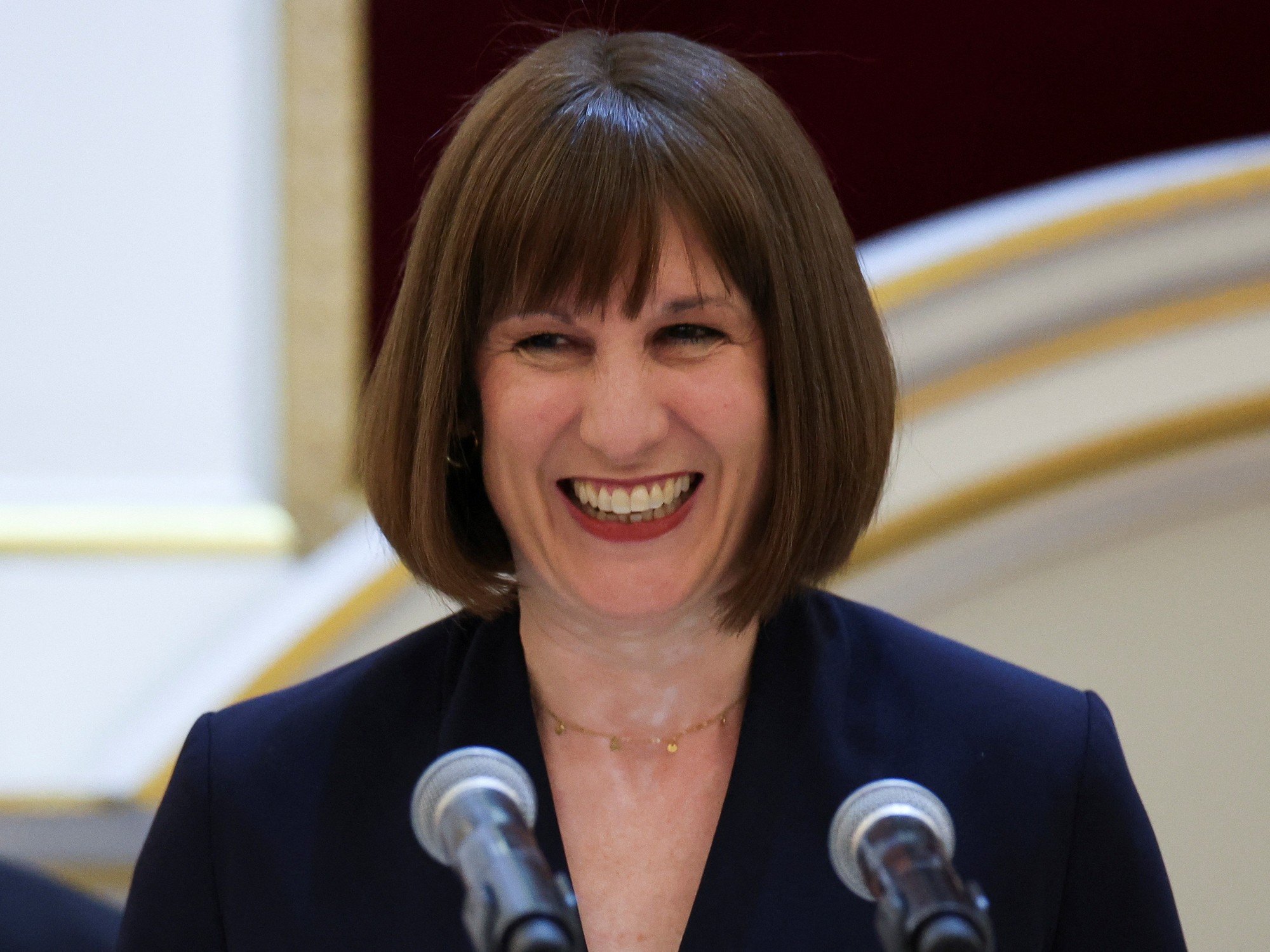Mark White on Southport suspect appearing in court
GB News
The Clacton MP has accused Sir Keir Starmer of using fear 'to shut down public debate that he considers inconvenient'
Don't Miss
Most Read
Trending on GB News
Nigel Farage has claimed Reform UK MPs were banned from discussing Southport suspect Axel Rudakubana in Parliament.
The Clacton MP says he submitted a written question to Home Secretary Yvette Cooper asking if Rudakubana had ever been referred to the counter-terrorism Prevent initiative.
However, Farage has said he was told by the Commons authorities that he could not ask about the matter because of the ongoing court case.
Prime Minister Sir Keir Starmer has warned that senior politicians can either support the police work on the Southport case or undermine it amid accusations of a cover-up over what was known about the alleged attacker.

Nigel Farage said he was told by the Commons authorities that he could not ask about the matter
PA
Rudakubana appeared via videolink at Westminster Magistrates’ Court on Wednesday, refusing to speak during the short hearing and keeping his grey sweatshirt pulled up over his mouth and nose. The 18-year-old is accused of possessing ricin and an al-Qaida document as well as murder and attempted murder.
Police and prosecutors have not said whether or not the accused was ever referred to the anti-terrorism Prevent initiative, one of the speculative questions Farage has been asking since July.
Farage wrote in The Telegraph: "The day after the three Southport killings, I could see that certain key facts about this atrocity had fallen into a vacuum. This had led to unhelpful online speculation. It struck me as vital for the public to know more.
"I understand the importance of not prejudicing a future trial, but in the current climate there appears to be no room to separate the ongoing legal process from the questions that I posed over the summer. This is deeply troubling."
LATEST DEVELOPMENTS:
 Thousands had gathered at the vigil in SouthportPA
Thousands had gathered at the vigil in SouthportPAFarage said that on Wednesday his Reform UK colleague Richard Tice was selected to ask a question of Starmer at Prime Minister’s Questions in the Commons. He wrote: "That morning, he received three panicked emails from the Commons authorities asking what the content of his question might be.
"Then, an hour before PMQs began, he received a telephone call in which he was told not to ask anything about the man accused of the Southport attacks. This point was reinforced strenuously by the Speaker in the Commons just before PMQs began. Parliamentary Privilege was effectively withdrawn."
Boston and Skegness MP Tice asked the Prime Minister whether he agreed that "it is important in incidents of terrorism that the authorities put out more information sooner in order to prevent an information gap."
Starmer replied that MPs "can either support the police in their difficult task or they can undermine the police in their difficult task. I know which side I am on." Farage says that Starmer's Government "has been very effective in using fear to shut down public debate that it considers inconvenient" adding that he cannot permanently dodge the questions that have arisen about the handling of the Southport attack.
 The Southport incident sparked widespread rioting across the countryPA
The Southport incident sparked widespread rioting across the countryPAAs well as the two charges announced on Tuesday, Rudakubana is accused of the murders of Alice da Silva Aguiar, nine, Bebe King, six, and Elsie Dot Stancombe, seven, who were stabbed during a Taylor Swift-themed dance class in Hart Street, Southport, on July 29.
He is also charged with the attempted murder of eight other children, instructor Leanne Lucas and businessman John Hayes, and possession of a knife. He will next appear at Liverpool Crown Court on November 13.
Independent reviewer of terrorism legislation Jonathan Hall KC called for the Government and the police to be more open about criminal cases in the wake of the row.
Hall told the BBC Radio 4 Today programme: "The Government has to be aware, and will be aware, that if there is an information gap, particularly in the mainstream media, then there are other voices, particularly in social media, who will try and fill it.
"I would always say to the Government – and do say to the Government, as I say to the police – if there is information that you can give, put it in the public domain and be really careful that you don’t fall into the trap of saying ‘we can only say zilch, because there are criminal proceedings’."








